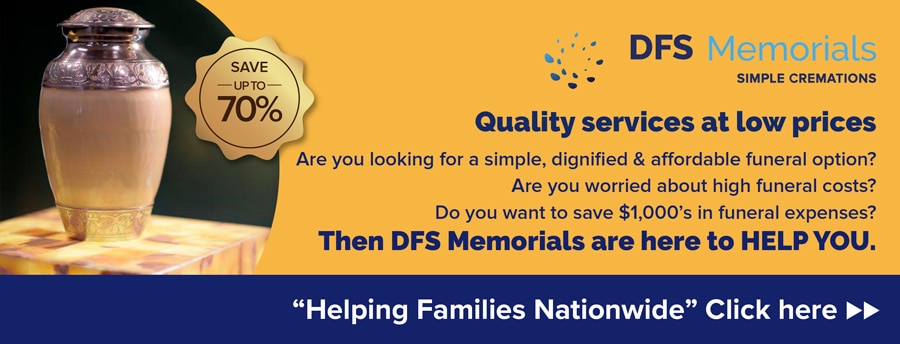
The first thing to remember is that a befitting and dignified funeral does not have to cost you a fortune. How much you payout for funeral services is not a reflection of how much you cared about someone. The most important aspect of conducting a funeral service is to enable family and friends to be able to come together, share in the grieving process and say a final goodbye to the one they loved. The bottom line is that this can be achieved just as effectively for a minimal amount.
What help is available for funeral expenses?
It should come as no great surprise that there is actually very little help available to support families with caring for their dead. What limited financial help that was provided by the state is being cut, as budget deficits grow.
It is your responsibility to ensure you arrange a funeral within your budget limitations. As the years of recession and the poor economy have impacted more and more families, so the amount of charitable help from funeral businesses has also diminished.
A funeral home traditionally requested ‘cash advancements’ to be paid upfront with the remainder of the funeral contract payable once the funeral had been conducted. These days more funeral homes are requesting full payment at the time of organizing the funeral, especially if budget services are being requested. A funeral home is under no obligation to offer you the option to pay in installments, and it is legal for them to insist on payment in full at the time of signing a funeral contract.
There are a number of different options to help finance a funeral, ranging from social security benefits to conducting car washes, and we have outlined these in detail in our article ‘How to pay for a Funeral -A breakdown of your options’. Read through this article and explore the options that best fit your personal circumstances.
Getting into debt is not an option
The above statement is a reality, both because financing for funerals is not very easy to access, and because no one should have to acquire debt to bury their deceased loved ones. Although there are companies offering ‘funeral loans’ today, these loans generally require you to have some credit rating. Financing may be an option to you if you have credit standing and if you would prefer to split the cost for a funeral into payments over a short term.-
Due to the nature of this type of financing companies generally require some initial payment towards the overall cost of the funeral and will finance the remaining amount over a six to thirty-six-month term. Funeral financing can be problematic due to the nature of credit for a purchase, which once undertaken, the purchaser can see no real long-term value and the creditor cannot ‘re-possess’ the purchase! Hence, you will find that obtaining credit for a funeral is only really available to those who can already afford it.
What about state burial assistance programs for low-income or no-income families?
State burial assistance is in decline. What state burial assistance is available varies significantly by state and even county. To find out what is available in your area, contact your county Social Services or Human Services or check out the chart listing Indigent Burial Assistance by state from the Funeral Ethics Organization in the resource section at the bottom of this page. Do be aware that this is changing as budgets change.
Most states and counties do have in place some kind of indigent burial program for the indigent, homeless and mentally ill that die within the care of state institutions and with no next of kin. However, these programs have funding only in so far as to cover the most basic disposition costs. The local county will cover a direct cremation or immediate burial with no service.
Funding for indigent burial assistance is being axed, if not reduced, in many counties across the U.S. now, as local budgets simply cannot stretch to covering these expenses. Especially as the number of indigent dispositions has increased for a county, as next of kin walk away because they cannot afford funeral expenses.
Medicare and Medicaid may offer some provision for those individuals who qualify to assist with burial or cremation costs. Some churches and charitable organizations also set aside limited funds to assist those within their congregation or community with arranging a funeral when they are on very low income and/or have no insurance.

Consider direct cremation as an affordable option
Arranging your own funeral means that you are still in control of the disposition process, and you can arrange a basic direct cremation for a minimal amount. In many cities across the United States, a basic direct cremation can be obtained for around $700-$900 complete. Check out the price for a simple direct cremation near you with your local DFS Memorials affordable direct cremation provider. This means the family can arrange a simple disposition for an affordable amount and then conduct their own dignified memorial service with the ashes present. Conducting your own memorial service means that you are not paying out for expensive services from a funeral home.
Consider a natural green burial as a funeral alternative
A natural burial can potentially work out much less expensive than a traditional burial. Plus the added advantage is that in most states you can conduct your own natural death care. In many states, you can legally bury your dead on your own property, and legally you do NOT need an elaborate casket, you can make or purchase a simple wooden coffin. Home death care conducted by the family can also be so much more personal than a funeral conducted by a funeral home. A home funeral can be arranged for less than $1,000. Read our article about DIY Funeral Care to learn more.
Consider whole body donation as a no-cost option
Donating your body to science has gained popularity of late. Not just because it can seem an ethical and progressive act, but also because it offers a “no-cost” disposition alternative. Many of the baby boomer generation are opting to donate their bodies to science as they feel it befits their belief system and alleviates their family from the financial and emotional burden of a funeral.
Bequeathing a body to science can certainly be a disposition option, however, there are pitfalls to planning on this as an option. Once upon a time, medical schools struggled to obtain sufficient cadavers, now they can be inundated with bequeathal requests, so they have become more selective on donor acceptance. At US Funerals Online we are hearing of more families who had subscribed to the anatomical gift registry but are being rejected at the time of donation.
The modern funeral industry in the U.S. is the fourth largest industry. It accounts for around $17 billion a year, and 10% of this industry is corporately held. This has meant that the business of ‘death’ has become a moneymaking domain, often driven by corporate greed. We are easy prey when we are at our most vulnerable, and a funeral purchase is known in the trade as a “distressed purchase”. Those ‘grief counselors’ who guide you through the process of arranging the funeral are also professional salespeople, taught to “up-sell”.
If you cannot afford funeral services, then you need to explore what options are available to you in your personal circumstances, but above all, you need to manage whatever you can within a budget. You can still arrange a dignified and respectful disposition for several hundred dollars.
Related Articles:
- How to create your own memorial tributes
- How to Plan a Simple and Affordable Funeral or Cremation Service
Resources:

